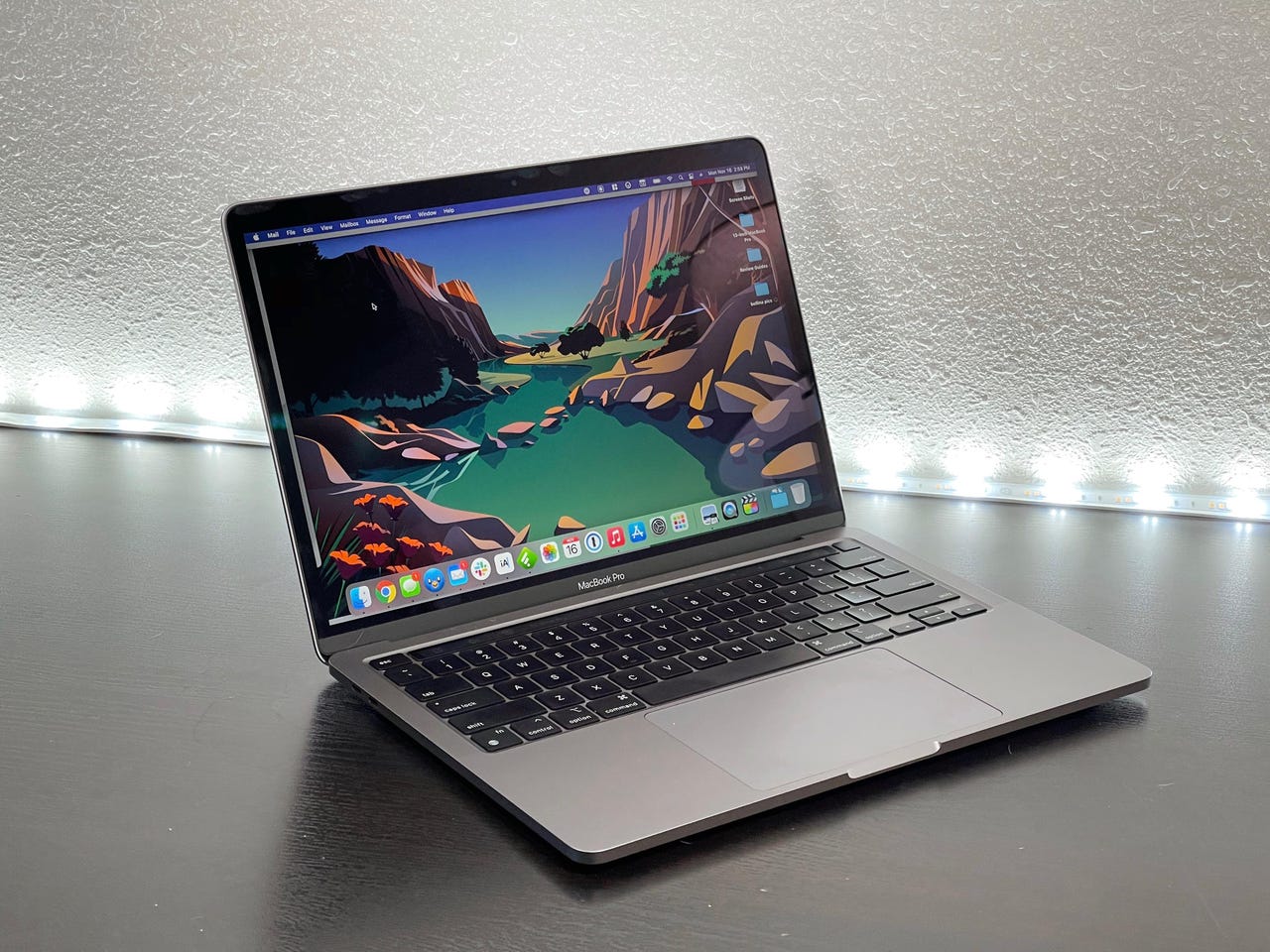
































MacBook Pro M1 2020
Jason Cipriani/ZDNetNow that Apple has unveiled the new second-generation M2 chips and is packing this updated silicon into the new MacBook Air and 13-inch MacBook Pro, people are asking a valid question.
It depends.
Let's begin with the differences between the M1 and M2. I've not had an opportunity to have hands-on time with MacBooks running these chips, so all I have to go on are Apple's facts and figures. I've outlined the main differences here but the bottom line is that the M2 has an 18% faster CPU and a 35% faster GPU.
That's a massive performance boost, and combined with a RAM bump to 24GB and a doubling of the memory bandwidth, it's something that people wanting the best performance possible will probably want.
But not everyone needs power.
The M1 chips are themselves very capable, and that$200 difference between theM1 and M2 MacBook Air might be more important to some than the performance boost.
Also: Don't waste your money on these Apple products
But it gets more complicated.
The other thing to bear in mind is that the M1 lineup is more than the M1. It also features theM1 Pro, M1 Max, and M1 Ultra . These high-end chips continue to dominate and outperform the M2 chip.
While I fully expect these to be updated to M2 silicon over the next year to 18 months, right now, these M1 variants are your only option.
You can buy Mac hardware noworwait until next year.
The choice is yours.
I'm also getting questions about upgrading. If you already own anM1 MacBook Air or MacBook Pro , is it worth upgrading to the M2?
Also: Apple M1 vs M2: M1 Pro, Max and Ultra are still more powerful -- for now
It depends.
Macs hold their value well, so you could likely sell or trade-in your M1 MacBook, and the upgrade becomes quite an affordable one. However, the question of whether it's a worthwhile upgrade remains to be seen. If you're pushing up to the edges of your existing MacBook -- especially in terms of RAM -- then this could be a worthwhile upgrade, but I wouldn't expect to be blown away by the M2.
Double-digit performance gains sound great, and indeed they are, but in the real world you'd have to be pushing the envelope hard to get the benefit. And if you're pushing that hard, then you might be better suited by a system running an M1 Pro or M1 Max.
 Tags chauds:
Notre processus
affaires
Les entreprises
La pomme
Tags chauds:
Notre processus
affaires
Les entreprises
La pomme